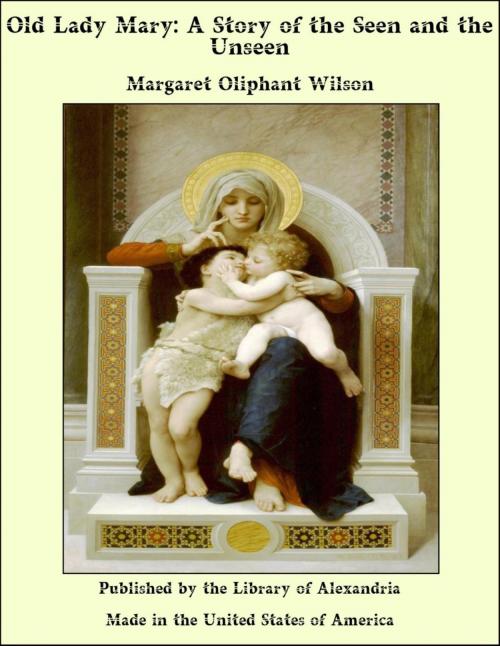Old Lady Mary: A Story of the Seen and the Unseen
Nonfiction, Religion & Spirituality, New Age, History, Fiction & Literature| Author: | Margaret Oliphant Wilson Oliphant | ISBN: | 9781465529299 |
| Publisher: | Library of Alexandria | Publication: | March 8, 2015 |
| Imprint: | Language: | English |
| Author: | Margaret Oliphant Wilson Oliphant |
| ISBN: | 9781465529299 |
| Publisher: | Library of Alexandria |
| Publication: | March 8, 2015 |
| Imprint: | |
| Language: | English |
She was very old, and therefore it was very hard for her to make up her mind to die. I am aware that this is not at all the general view, but that it is believed, as old age must be near death, that it prepares the soul for that inevitable event. It is not so, however, in many cases. In youth we are still so near the unseen out of which we came, that death is rather pathetic than tragic,—a thing that touches all hearts, but to which, in many cases, the young hero accommodates himself sweetly and courageously. And amid the storms and burdens of middle life there are many times when we would fain push open the door that stands ajar, and behind which there is ease for all our pains, or at least rest, if nothing more. But age, which has gone through both these phases, is apt, out of long custom and habit, to regard the matter from a different view. All things that are violent have passed out of its life,—no more strong emotions, such as rend the heart; no great labors, bringing after them the weariness which is unto death; but the calm of an existence which is enough for its needs, which affords the moderate amount of comfort and pleasure for which its being is now adapted, and of which there seems no reason that there should ever be any end. To passion, to joy, to anguish, an end must come; but mere gentle living, determined by a framework of gentle rules and habits—why should that ever be ended? When a soul has got to this retirement and is content in it, it becomes very hard to die; hard to accept the necessity of dying, and to accustom one's self to the idea, and still harder to consent to carry it out. The woman who is the subject of the following narrative was in this position.
She was very old, and therefore it was very hard for her to make up her mind to die. I am aware that this is not at all the general view, but that it is believed, as old age must be near death, that it prepares the soul for that inevitable event. It is not so, however, in many cases. In youth we are still so near the unseen out of which we came, that death is rather pathetic than tragic,—a thing that touches all hearts, but to which, in many cases, the young hero accommodates himself sweetly and courageously. And amid the storms and burdens of middle life there are many times when we would fain push open the door that stands ajar, and behind which there is ease for all our pains, or at least rest, if nothing more. But age, which has gone through both these phases, is apt, out of long custom and habit, to regard the matter from a different view. All things that are violent have passed out of its life,—no more strong emotions, such as rend the heart; no great labors, bringing after them the weariness which is unto death; but the calm of an existence which is enough for its needs, which affords the moderate amount of comfort and pleasure for which its being is now adapted, and of which there seems no reason that there should ever be any end. To passion, to joy, to anguish, an end must come; but mere gentle living, determined by a framework of gentle rules and habits—why should that ever be ended? When a soul has got to this retirement and is content in it, it becomes very hard to die; hard to accept the necessity of dying, and to accustom one's self to the idea, and still harder to consent to carry it out. The woman who is the subject of the following narrative was in this position.















